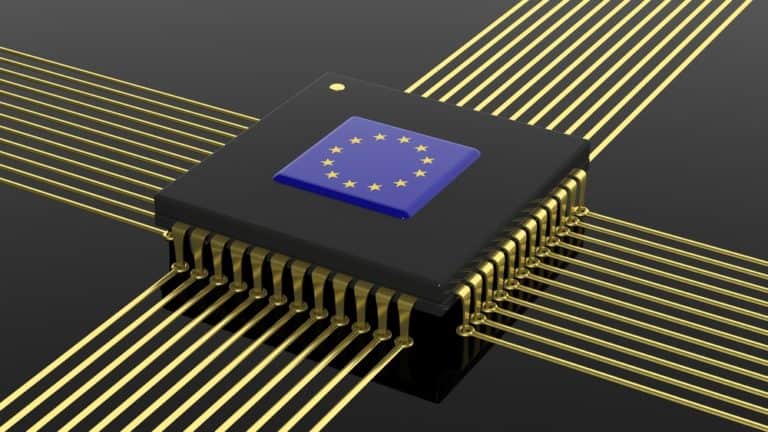Germany plans to invest several billion euros as part of a major European project, into bringing semiconductor production back to the bloc. The goal is to strengthen German and European tech sovereignty, which is not on stable ground yet.
Economy Minister Peter Altmaier of Germany held talks with 50 representatives of the European and international semiconductor industry on Wednesday to promote the expansion of microelectronics in Germany and to encourage investments in his country with a support package.
Altmaier stressed that access to sufficient microchips will give a competitive edge to any “successful global economy in the coming years.”
Reclaiming production sites
Altmaier told the representatives that “we must act if we want to preserve our technological sovereignty.”
One of Europe’s subsidy tools to stimulate investments and reduce reliance on imports is the Important Projects of Common European Interest (IPCEI). Within this framework, the German government intends to invest about 3 billion euros to reclaim production sites along the entire value chain of chip making.
The initiative is primarily driven by the global semiconductor shortage that has resulted in production losses across multiple industries.
The EU is not powerful enough on the semiconductor front
In recent years, the demand for semiconductors has grown exponentially, partly due to the increased demand caused by Industry 4.0 and the Internet of Things.
Altmaier’s message is that Germany wants to prepare itself, in particular, for the digital and environmental challenges the future holds. E-mobility and Industry 4.0 require more powerful semiconductors than what Germany and Europe make.
Because of that, the future will depend on other suppliers unless the EU and Germany work to reclaim the technological sovereignty in full. For now, the bloc continues its march toward technological supremacy, even as it deals with tech giants and their problems.
